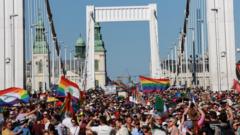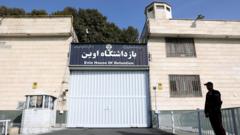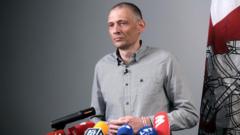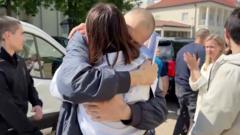Cardinal David, celebrated for his commitment to the marginalized in the Philippines, is set to participate in the papal conclave. His voice is vital as the Catholic Church navigates declining influence and critical social issues such as drug violence and family planning against the backdrop of Pope Francis’ teachings.
Cardinal David: A Humble Bishop’s Journey to Represent the Filipino Church in the Conclave

Cardinal David: A Humble Bishop’s Journey to Represent the Filipino Church in the Conclave
Cardinal Pablo Virgilio David, recently appointed by Pope Francis, prepares to participate in the conclave that will select the next pope, reflecting on his devotion to uplifting the urban poor in the Philippines amidst contemporary challenges faced by the Catholic Church.
Cardinal Pablo Virgilio David, a newly appointed cardinal and one of three Filipino representatives heading to the conclave, has expressed amazement at his ascent to such a significant role within the Catholic Church. Speaking from his cathedral in Caloocan, located just outside Manila, he prepared for his journey to Rome, stating, “Not even in my wildest imagination did I think this would happen.” His appointment by Pope Francis underscores a shift towards bringing the church closer to its parishioners, particularly those in impoverished communities.
Despite having served as a bishop for just five months, Cardinal David embodies the spirit of Pope Francis's mission—a desire to engage with the everyday struggles of the urban poor. Approximately 80% of the Philippines' population practice Roman Catholicism, making it a crucial territory for the Church. Filipino Cardinal Luis Antonio Tagle is also anticipated as a potential frontrunner, or papabile, for the next papacy.
The church’s role in the Philippines is complex as it grapples with significant challenges. The influence of the Catholic Church is waning, particularly as alternative charismatic churches gain followers and as the Church’s stances on issues like family planning face political resistance. Pope Francis has aimed to rejuvenate the Church’s outreach, urging a welcoming stance towards diverse viewpoints and advocating for the needs of the needy. Yet, many Filipino Catholics have taken issue with the Church’s traditional positions, especially regarding contemporary divorce laws and reproductive health issues.
Cardinal David gained international attention for his outspoken criticism of the brutal drug war initiated by former President Rodrigo Duterte, which resulted in thousands of deaths. He memorialized victims like Kian Delos Santos, a teenager who was killed in a controversial police operation, and advocated for the rights of the marginalized during a tumultuous political climate. Facing threats and government accusations during this time, he found support from Pope Francis, who encouraged him to remain steadfast in his moral commitments.
The Catholic Church in the Philippines has evolved significantly over its 500-year history, often entangled with the political landscape. Traditionally, it retained allegiance but faced a decline in influence especially in modern times, as illustrated by the passing of the Reproductive Health Law in 2012. This legislative shift has drawn both criticism and relief from different sectors of society, reflecting a greater public demand for autonomy in personal choices.
Cardinal David emphasizes a collaborative relationship between church and state, although that perspective often encounters pushback. With society increasingly questioning the Church's moral authority amid various scandals, the Cardinal advocates for humility and introspection, reminding that the role of the Church is to engage as a moral guide rather than a governing power.
While pressures from various social movements challenge the Church’s doctrines and insist on diverse representations, figures like Cardinal David signal a willingness to adapt and address the evolving needs of the Filipino populace. As he prepares to play a pivotal role in the forthcoming papal conclave, the upcoming choices made by the Catholic Church will resonate deeply with issues that define contemporary Philippine society.



















